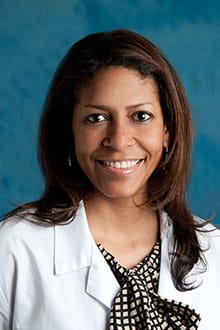The clinical use of the Pap test beginning in the 1950s led to a dramatic decrease in cervical cancer incident and death rates. More recently, the implementation of the human papilloma virus (HPV) vaccine in 2006, which is now available for men and women up to the age of 45, has also helped to further decrease the burden of cervical cancer in the future and should be encouraged to all who are eligible to receive it.
While screening and the HPV vaccine have helped lower incidences of cervical cancer, these mitigation efforts are especially important for certain populations at a higher risk. These include those from lower socioeconomic status, the non-Hispanic Black population and seniors.
Currently, the US Preventive Task Force and Awareness Society for Colposcopy and Cervical Pathology do not recommend routine cervical cancer screening after age 65 if the patient’s previous screening tests — taken within the last 10 years — are negative. However, more research may be warranted to determine whether screening should continue not only for non-Hispanic Black women over age 65, but possibly for all women.
We know that most of our patients do not come in for a Pap smear after 65 because of current guidelines. However, this only applies to our patients that have had multiple adequate negative screening tests in the last decade leading up to the 65th year of life. This would ideally mean two or three negative Pap smears with or without HPV co-testing from ages 55-65. Diligence is needed to ensure patients have been properly screened within the last 10 years before screening is discontinued at the age of 65.
This is an especially important consideration among non-Hispanic Black seniors. Some studies have shown a notable increased risk in cervical cancer for women within this group. Just as we changed the guidelines for colon cancer screening for African Americans within the past few years, this may be something to consider for cervical cancer screening guidelines.
Patients who did not qualify to receive the vaccine in their preteens are at obvious risk due to lack of protection from high-risk HPV subtypes granted by vaccination. There are recent studies which show an increasing prevalence of cervical cancer in this age group of women who continue to be sexually active with a population of men that were also not privileged to this vaccine. Also, this age group may have comorbidities which may limit treatment options.
Poverty, a huge predictor of poor health, includes those of all ages and races and is a significant factor for many patients with cervical cancer. Those who are uninsured are at a higher risk of cervical cancer due to less stringent or even a complete lack of screening and access to overall healthcare. A 2017 PLOS One survey found that young white women who live in certain southern states are more likely to die from cervical cancer than their counterparts in other regions where there is more access to healthcare. Ensuring that all have access to adequate healthcare is another crucial step in eliminating cervical cancer incidences and deaths.
It is important to note during January — Cervical Health Awareness Month — that cervical cancer screening is already a prevention success story. Extensive screening and the HPV vaccine are vital steps in continuing to expunge the disease.
If you or your pre-teens/teens are eligible and have not received the HPV vaccine, talk to your doctor about its benefits, including preventing cervical cancer. Alongside the HPV vaccine, receiving regular Pap tests is vital to mitigating the risk for cervical cancer for all.


